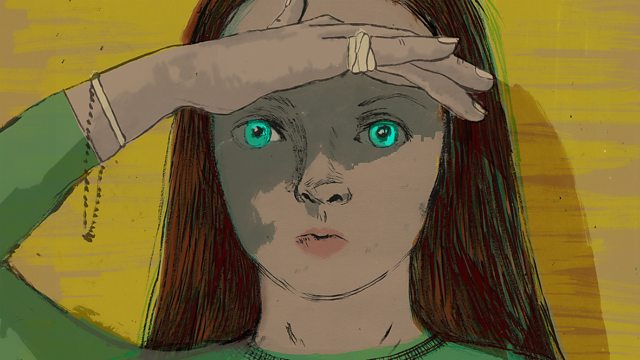Obsession
Aleks explores how obsessive behaviour can spiral out of control and hears from people whose watching of others became uncontrollable, compulsive and all consuming.
Zachary, Stina and Andrea do not suffer from Obsessive-Compulsive Disorder but they all became stuck in obsessional loops after being triggered by an event in their lives which left them looking for answers. Their obsessions left them all with compulsions to watch and research others online, to seek the certainty they craved to stop the hurt they felt,. But Andrea learnt that "You'll never find the answers you're looking for, but end up chipping away at yourself." For her she believed her obsession and compulsion became a form of self harm.
Emma Stone is the Director of the National Centre for Cyberstalking Research at the University of Bedfordshire who explains how being engaged in a repetitive behaviour such as online stalking, in which the only reward is getting to look at someone online without getting any reciprocal energy back is not something that is going to raise your self-esteem. From her experience Andrea learnt that once you take something from online to offline you really are deciding who you are going to be and Zach discovered that if you really want to know who you are look at yourself online when no one is watching.
Francesca Cwynar who suffers from Pure O, a form of Obsessive - Compulsive Disorder shares how invisible her obsessive intrusive thoughts are and how she thinks social media mimics the intrusive thoughts people with Pure O experience.
Producer: Kate Bissell
Researcher: Laurence Cook
With thanks to Clea Skopeliti for consultation on OCD research.
Last on
More episodes
Previous
Next
![]()
What does obsession look like in the digital age?
Does having social media at our finger tips make obsessive behaviours easier?
Francesca Marie Cwyna

Andrea Hubbert
Stina Sanders
Dr Emma Short

Zachary Stockill

Katie d'Dath

Broadcasts
- Mon 17 Jun 2019 16:30Βι¶ΉΤΌΕΔ Radio 4
- Wed 9 Oct 2019 23:30Βι¶ΉΤΌΕΔ Radio 4
Podcast
-
![]()
The Digital Human
Aleks Krotoski explores the digital world



